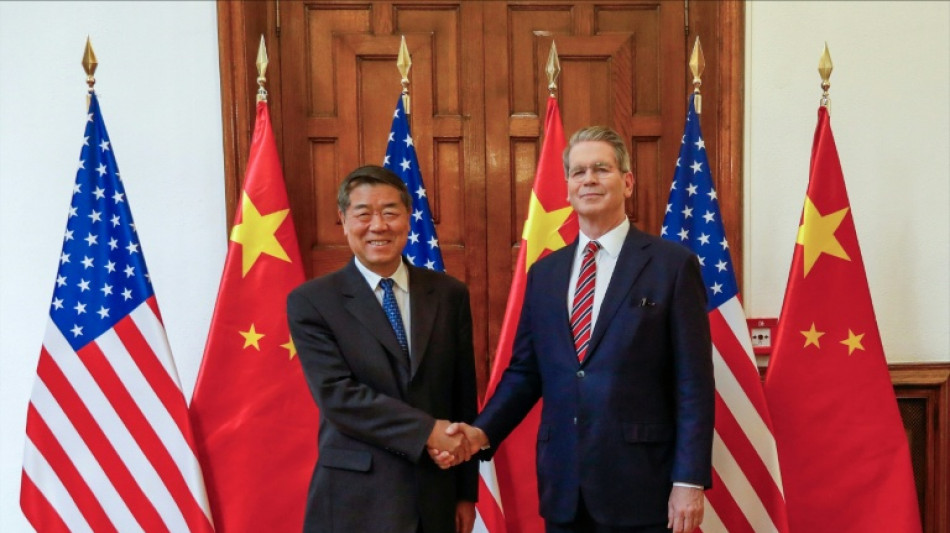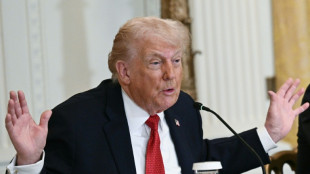

China, US 'can find ways to resolve concerns' as negotiators set to meet
Beijing and Washington "can totally find ways to resolve each other's concerns", China's commerce minister said Friday, as officials from both sides were set to meet in Malaysia for trade talks.
The world's two biggest economies have spent a large part of this year locked in a tit-for-tat trade row, though they appear to be seeking to avoid further escalation.
Chinese vice premier He Lifeng is leading a delegation to meet US counterparts in Malaysia from October 24 to 27, Beijing said Thursday, the latest of several such rounds of negotiations.
Commerce minister Wang Wentao said Friday that the previous meetings had shown "China and the United States can totally find ways to resolve each other's concerns".
The two can "find correct ways to coexist, and promote the healthy, stable and sustainable development of China-US economic ties through mutual respect and equal consultation", he told a news conference marking the end of a key political meeting in Beijing.
The Malaysia talks come after a "candid, in-depth and constructive" weekend call between He and US Treasury Secretary Scott Bessent, who will attend the meeting.
Hopes that ties might stabilise were given a further boost when the White House announced US President Donald Trump will meet Chinese counterpart Xi Jinping in South Korea next Thursday, having previously threatened to cancel.
The preceding talks in Malaysia will cover "important issues in the economic and trade relationship between China and the United States", Beijing said Thursday.
Trade tensions between the two have been on a rollercoaster ride since Trump's return to the White House, with both sides slapping escalating tariffs on each other.
Tit-for-tat duties reached triple digits on both sides at one point this year, snarling supply chains.
A key meeting in May between their negotiators in Geneva resulted in a 90-day suspension of the highest tariffs.
Subsequent talks in London, Stockholm and Madrid worked towards establishing a more permanent deal, among other agreements, but the truce remains shaky.
The pause on steeper duties is in place until November 10 after being extended again in August.
However, disagreements have flared again, with Beijing this month announcing sweeping controls on the critical rare earths industry -- prompting Trump to threaten 100 percent tariffs on imports from China in retaliation.
The countries also began applying arrival fees against each other's ships, sparked by a US "Section 301" investigation that found China's dominance in the maritime sector was unreasonable.
But Trump said on Wednesday he hopes to reach a "deal on everything" with Xi.
A.Olsson--RTC



